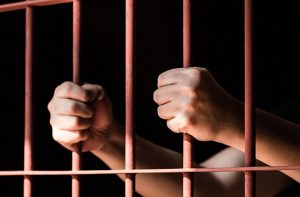
As a criminal defense attorney, there’s nothing tougher than seeing a client sentenced to a hefty jail term.
Ten years, 15 years, 20-to-life, rolls off the judge’s tongue as if it’s the most normal thing in the world. But to the attorney, who’s spent months, even years, getting to know the defendant, speaking with his family and friends, learning his history, sitting next to him at a trial (one of the scariest things any human being can experience), it can be devastating.
Compartmentalization is key — keeping all the sorrow engrained in the work separate from your daily life. For me, it’s important to end the case (and your feelings about it) when the client walks into prison. Draw a line. Say goodbye.
However, after watching the fabulous documentary “The Work,” I realized that some of the toughest issues my client has to face are after the trial’s over. Prison begins the rest of his life (or a good chunk of it) and it’s one inhospitable place — unnatural, isolating, threatening, dehumanizing, and just plain dull.
Letting down your guard, expressing your true feelings, coming to grips with the grief of being locked away from your family, or the guilt of having hurt another (whether it be the victim in the case or a newborn son you barely got to meet), are just some of the internal struggles prisoners face.
Talk about needing therapy. Prisoners are ripe for it, hungry for a safe way to express their inner emotions without looking weak.
“The Work” covered a four-day period in Folsom State Prison, California, a maximum-security facility where many inmates serve life sentences. Twice a year, counselors lead a four-day group-therapy session inviting in selected members of the public who want to share the experience.
The sessions were raw as each man, guests included, reached down deep to bring up feelings about themselves and their histories. Imagine being a bartender or a teacher’s assistant or a museum associate thinking that going to Folsom might be a cool way to spend a weekend, then being confronted with the inmates’ probing your background, your motivation, your problems. Although the guests have traumas that seem lightweight compared to the inmates, commonalities appear — feelings of inferiority, growing up without dads, a disconnectedness from life.
The documentary focused on one group of men and the three guests who participated in the four-day workshop with them. Having been in therapy sessions before, the inmates knew more about “going into the well and bringing something up” than their better-heeled visitors. At first the guests hung back and observed, but before the fours days finished, each guest had a floodgate-moment, when he was willing to share his vulnerability with “some of the baddest guys out there,” as one inmate described the inmates.
As emotions rise to the surface, the men, under the experienced eye of a moderator, group around the person “reaching inside,” to create a kind of cocoon where he can express his emotions physically (like many inmates do), but without hurting anyone. Guttural, primordial wails welled up and punctuated the film not only from the men we were watching but from groups all around them.
Dark Cloud, a thick-bodied, tattooed Native American in prison for having thrust a “big blade” into a guy to “hack him in half,” told the group, “I just want to be vulnerable and not scared to be vulnerable, cause every time I’ve been vulnerable in the past, I’ve been hurt.”
Another inmate, a 50-something former gang member, jailed in his early 20s said, “I don’t want to feel like I can’t feel anymore.”
One of the visitors, Chris, a young, willowy, museum assistant, was shy to bring up the banality of his struggle with his dad, who told him to go back to the house when he couldn’t find the right tool to help him in the garage. It was minor compared to the history of abuse, drug addiction, and abandonment the inmates described, but the group treated his revelation with respect, formed a barrier of raised fists in front of him and urged him to force his way through, to take a stand, be a man.
The film showed there’s less that separates us from people in prison than we think. We all have the same needs, desires, and hope. We just had different upbringings and sets of choices. But ultimately, these are people in pain just like everyone else. Only their pain is worse, and they’ve got very few places to express it.
Toni Messina has tried over 100 cases and has been practicing criminal law and immigration since 1990. You can follow her on Twitter: @tonitamess.

